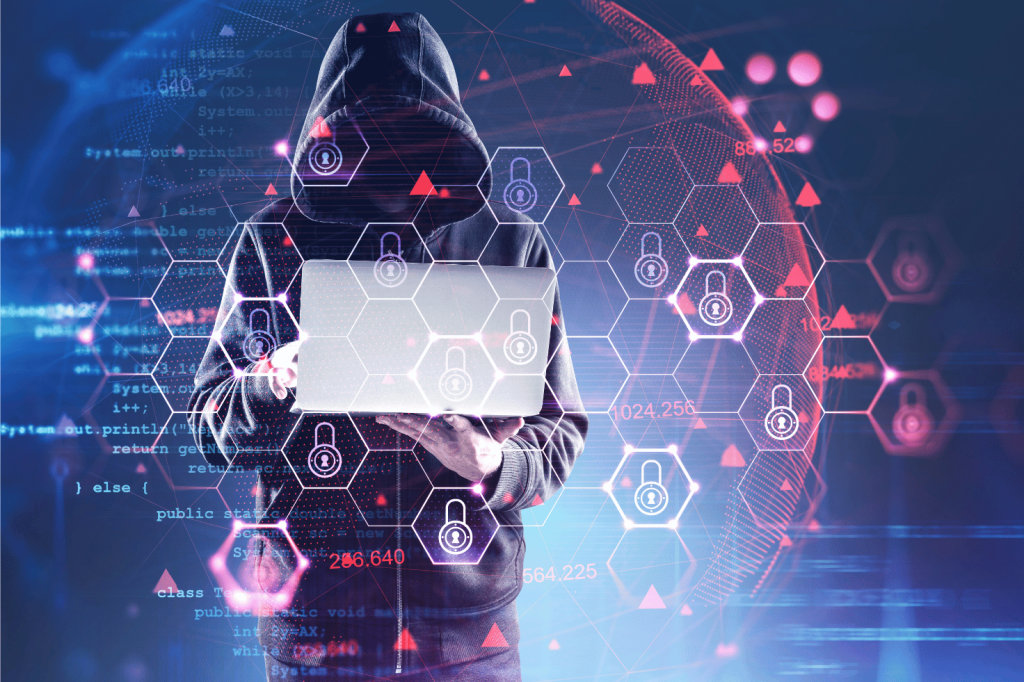Introduction
In the interconnected digital landscape, cybersecurity for law firms has emerged as a paramount concern worldwide. As legal professionals store and manage vast amounts of sensitive information, safeguarding data integrity, client confidentiality, and the firm’s reputation has become imperative. Cybersecurity for law firms is not just an option; it is an indispensable aspect of modern legal practice. By implementing robust cybersecurity measures, law firms can mitigate risks, ensure compliance with regulatory obligations, and fortify their position of trust within the legal industry.
In this blog, we will tell you about compliance, and legal and regulatory obligations. Also, we will be imparting important tips to ensure cybersecurity compliance in your law firms.
Understanding Cybersecurity for Law Firms
Cyber security is crucial for law firms. It involves protecting sensitive data, maintaining client confidentiality, and defending against unauthorized access. Law firms are attractive targets for cyber criminals due to the valuable information they possess. Implementing robust cyber security measures is essential to mitigate risks, ensure compliance, and maintain the firm’s reputation. Prioritizing cyber security instills client confidence and upholds professional integrity in today’s digital world.
Law firms today face an ever-expanding array of cyber threats, as technology advances and hackers become more sophisticated. Malicious actors actively target law firms due to the valuable data they possess, such as intellectual property, financial records, and privileged client information. From phishing scams and ransomware attacks to social engineering ploys, cybercriminals exploit vulnerabilities in law firm networks, applications, and human interactions. The risks are amplified by the widespread use of cloud storage, mobile devices, and remote working arrangements, creating new entry points for cyber intrusions. Understanding these evolving threats is crucial to implementing proactive cybersecurity measures that safeguard the firm’s assets and maintain client trust.
Cybersecurity for law firms: tips & tricks
Cyber security encompasses a range of practices and measures designed to defend against unauthorized access, data breaches, and malicious attacks. Here are some tips by which legal professionals can comply the cybersecurity measures.
Conduct a cybersecurity risk assessment:
Start by assessing your law firm’s cybersecurity risks. Identify the potential threats and vulnerabilities to your data and networks and take steps to mitigate them. Conduct regular risk assessments to ensure that your firm’s cybersecurity practices are up-to-date.
Secure your networks:
One of the best ways to protect your law firm’s data is to secure your networks. Implement firewalls, anti-virus software, and intrusion detection and prevention systems to prevent unauthorized access and cyberattacks.
Use strong passwords:
Passwords are the first line of defense against cyber threats. Ensure that all staff members use strong passwords that include a combination of uppercase and lowercase letters, numbers, and special characters. Implement multi-factor authentication to add an extra layer of security to your login process.
Keep software up-to-date:
Cyber attackers often exploit vulnerabilities in software to gain unauthorized access to networks and data. Keep all software, including operating systems and applications, up-to-date with the latest security patches and updates.
Educate staff on cybersecurity best practices:
Train all staff members on cybersecurity best practices, including how to recognize and report suspicious emails, use strong passwords, and secure network practices. Educate them on the latest cyber threats and ensure that they are aware of the firm’s cybersecurity policies.
Backup data regularly:
Regularly backing up your firm’s data is crucial in case of a cyberattack or system failure. Implement a robust data backup and recovery plan to ensure that you can quickly recover lost data and minimize the impact of any cyberattack.
Incorporating an incident response policy checklist ensures that your law firm is prepared to respond swiftly and effectively to any cyber incidents, minimizing potential damage and downtime.
Secure mobile devices:
Many legal professionals use mobile devices to access and share client data. Implement security measures on mobile devices, including the use of strong passwords and encryption, and install anti-virus software compatible with iOS or Android operating systems.
Emerging Trends and Future Challenges
Law firms must stay aware of emerging cybersecurity trends to protect their sensitive data and clients’ information. Cloud security is a key consideration as law firms adopt cloud-based solutions. Understanding best practices for securing cloud environments, including encryption and access controls, is crucial. The Internet of Things (IoT) introduces new risks, as connected devices can become entry points for cyberattacks. Law firms should assess IoT risks and implement security measures to maintain device and network integrity. Artificial intelligence (AI) presents both opportunities and challenges. Exploring AI-driven security solutions and investing in AI-powered threat detection can help law firms stay ahead of evolving threats.
Law firms need to proactively adapt to the changing cybersecurity landscape. One challenge is the increasing sophistication of cyberattacks. Investing in cutting-edge security tools, conducting regular assessments, and continuous monitoring can help prevent evolving threats. Keeping up with evolving regulations, such as GDPR and upcoming legislation, is crucial to ensure compliance and avoid legal consequences. The expansion of remote work and mobile technologies poses new security challenges. Establishing secure remote access protocols, enforcing strong authentication, and educating employees about remote work risks are essential. Embracing a proactive approach, fostering cybersecurity awareness, and collaborating with experts empower law firms to protect themselves against evolving cyber risks.
Choose your legal tech provider wisely:
When it comes to cybersecurity is using a cloud-based law practice management software that provides the best security features. Choose a software that offers strong data encryption, regular data backups, and multi-factor authentication to protect your law firm’s data. CaseFox, for example, is a legal practice management software that prioritizes cybersecurity by offering features like two-factor authentication, data encryption, and regular data backups.
With the help of secure legal management software, you can have peace of mind knowing that your law firm’s data is safe and secure. CaseFox provides the best world-class security with two-factor login authentication, encrypted files, and safe cloud storage for safe and secure practice management.
Stay vigilant and take proactive steps to protect your law firm from cyber threats.
By following these best practices and utilizing available resources, such as an
online cyber security masters, you can maintain the trust of your clients and protect
your reputation in the legal industry.
In addition to these best practices, it is essential to stay up-to-date with the latest cybersecurity news and trends. The following resources can help legal professionals stay informed on cybersecurity issues:
- The National Institute of Standards and Technology (NIST) Cybersecurity Framework provides guidelines and best practices for improving cybersecurity in organizations.
- The American Bar Association (ABA) offers a Cybersecurity Legal Task Force, which provides resources and guidance to legal professionals on cybersecurity-related issues.
- The Federal Trade Commission (FTC) provides guidance on cybersecurity for small businesses, including law firms.
- The Cybersecurity and Infrastructure Security Agency (CISA) provides a wide range of resources, including alerts and guidance, to help businesses protect their networks from cyber threats.
- The Department of Homeland Security (DHS) provides resources and training to help organizations of all sizes improve their cybersecurity posture.
Conclusion:
In conclusion, cybersecurity is a crucial issue for law firms, and legal professionals need to take proactive steps to protect their clients’ data and maintain their reputations. By implementing best practices related to cybersecurity, including securing networks, using strong passwords, educating staff, and staying up-to-date with the latest news and trends, legal professionals can ensure the protection of their firm’s data and maintain their clients’ trust.

